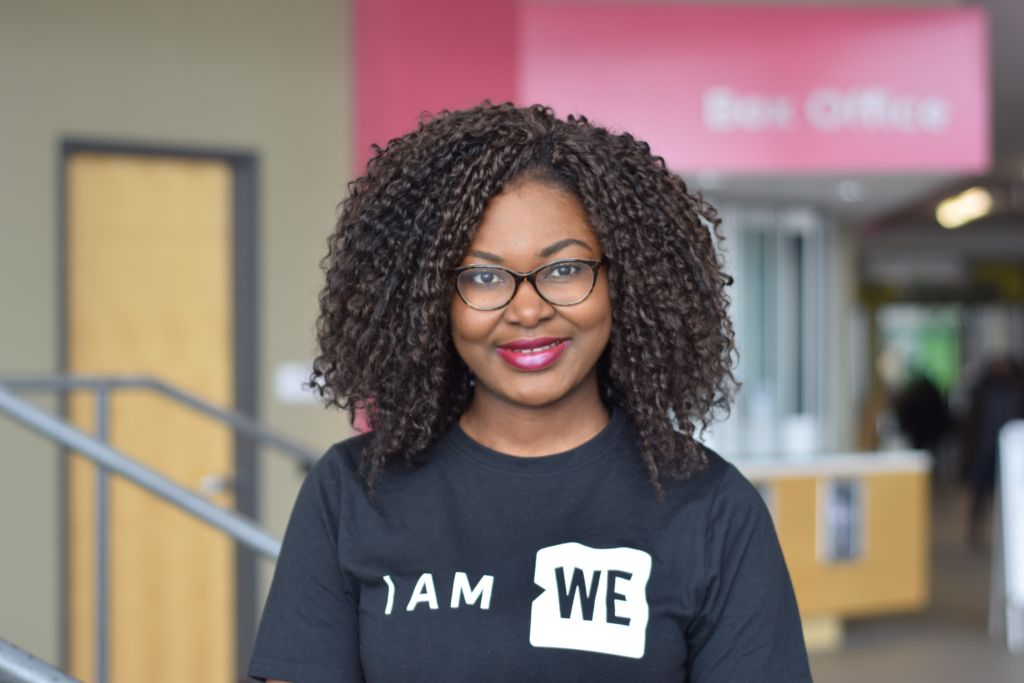After four-years of writing papers and analyzing national and international policies at the University of Ottawa for my degree in public administration, I was confident that a college diploma would not be hard to achieve.
I knew I was competent. But I’d not yet secured a job in my previous field of study. When I enrolled in the journalism program at Algonquin College therefore, I wasn’t as motivated as I’d been when I started university. I’d not gotten a job last time. Could it happen again?
Journalism had been my third pick when I applied for college. I didn’t get my first two choices – project management and business administration – so I was a little disappointed.
Then came the challenges. College requires a lot more resilience than university does – especially when you’re learning to write news as a reporter. I love writing but I lacked the creative skills of a reporter, which was one of the requirements in my program. Everything was a shock to me.
Everyone in my class surely had their own fears but the truth is, I saw them all to be surviving the storm but for me. I felt so lost in most of my classes. Sometimes, I felt too stupid to ask questions when I didn’t understand because I feared they’d ask, “does she really have a university degree?”
And journalism was a lot more demanding than my previous program at the university. College is more practical and engaging than theory, which is what I was familiar with. Unlike at university where I could often be tucked away with books and documents, we had to cover events, interview real people and write stories for the school’s newspaper, the Algonquin Times and our city-wide student magazine, Glue.
I didn’t need to do any of that for my school projects at university. I’d mastered the routine of doing research and writing a good academic paper. It was easier for me to write a 15-page research paper than writing a “lead” for my news story.
What made it tougher too was that there were a few other people in my journalism class who also had university degrees just like myself – and they were excelling in the program.This got me thinking: maybe I was in the wrong program.
What was more challenging for me was the fact that journalism wasn’t just about writing. We also had to do photography, shoot videos, learn desktop publishing and produce audio stories.
We used so many different Adobe applications for these classes, all of which were completely new to me. Technology hadn’t been my thing. I felt much slower than my classmates to catch up in these classes, which required the use of external devices.
So I felt like a dummy in my journalism classes. It was like I was swimming in an ocean of never-ending assignments. I was so used to working from home and at my own pace. But because I was working on news, I had to be on my toes for every story. The minute I’d relax, I’d worry everything would fall apart and I’d have to put back the pieces back together.
I knew about plagiarism when writing research papers but I didn’t know about credibility, which is what journalism is all about. You cannot make up stories. You need facts to back it up and live sources too.
I’m very open and have strong interviewing skills but what I lacked was writing skills. I was too ashamed to look at my mistakes and correct them each time I got back an assignment. I felt, my teachers were just as tired of me as I was of myself trying to write news. It was almost like faking a personality that is not you.
However, there were some good things that I’ve loved about journalism. I loved the exposure to the world we got doing interviews and engaging with people in our communities for potential stories. This helped to boost my interpersonal and people skills. I felt comfortable communicating with others on diverse topics.
And overall, journalism has taught me to be creative. For instance, now I am able to summarize a story in an eight-word “Hed.”
Although it has been difficult, both experiences have really been huge for me. University taught me how to be political and ideological, while college showed me how to back up ideologies with concrete facts, worthy for news.
